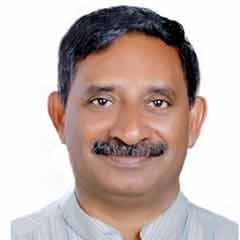Migration to ‘mass’ bunking: Syro-Malabar Church sets up Pravasi Apostolate to handle it all

Mail This Article
Wayanad: No church would want its laity astray and asunder and the Mananthavady Diocese of the Syro-Malabar Roman Catholic Church is no different. In a bid to corral the members of the laity, especially the ‘missing’ ones, the diocese has set up a Pravasi Apostolate. The diocese is also undertaking a Pravasi census to collect data and use it to streamline their work.
The dioceses and the church are worried about the growing disconnect between youth and the church, resulting in a noticeable decline in attendance at Holy Mass, catechism classes, and parish activities.
The meetings within the eparchy have witnessed strong internal criticism regarding the Church's ‘inability’ to foster unity among the faithful and actively engage with parishioners in their daily lives.
The diocese identified the absence of a comprehensive database and direct communication with the laity as obstacles preventing the church from responding promptly and effectively to urgent pleas for assistance from individuals stranded abroad during crises such as the Israel-Palestine and Russia-Ukraine conflicts.
Father Manoj Ambalathinkal, director of the Pravasi Apostolate, told Onmanorama that the establishment of the apostolate was aimed at tracking the global movements of believers from the diocese. It also intends to improve connections with church members who have already settled in their chosen countries of migration. Fr Ambalathinkal said there was significant migration from even the most remote parishes of the diocese to countries such as the UK, Australia, Canada, the US. “What is particularly disheartening is that, unlike in the past, these migrations are no longer temporary; individuals are now settling permanently in their chosen countries. It is the church’s duty to ‘be with’ the laity wherever they are, ensuring they maintain a strong spiritual connection with the church,” he added.
The Mandya diocese was set up in 2010 when educated youngsters migrated to Bengaluru in search of jobs. “It is the policy of the Syro Malabar Church to constitute apostolates to cater to the Christian diaspora in a better way,” Fr Ambalathinkal said. Recently, the Pravasi Apostolate issued circulars to all parishes to collect details of church members who lived elsewhere, their vocation, and ‘spiritual status.’
Eyeopener
The dwindling number of new entrants in catechism classes was an eye-opener for the Church. “We used to conduct the Holy Communion of students as mega-events with 50 to 100 children having the blessings on a day. But now, many churches have less than 10 children registered for the Holy ceremonies,” he added. On the other side, ‘receiving’ parishes like Dharmaram in Bengaluru are facing the problem of excess as up to 2,000 children attend the Sunday school there, sources said.
PV John, headmaster of the Sunday School at Fathima Matha Church, Kayyunni, said there were only a few students in the first level of the Sunday School. A decade ago, there were two divisions with more than 50 students. “The decline in agriculture resulted in the mass migration of youngsters and there is nobody left, apart from the elderly,” he said.
A vicar told Onmanorama on the condition of anonymity that they could not find a ‘believer’ to lead the Parent Teacher Association (PTA) committees of church-run schools. “As we have many ‘managerial and administrative’ issues to be sorted out in association with the PTA committee, someone from another community may not fit in,” he said.
Migration to Israel
The migration of workers from Kerala to Israel, mostly as caretakers for the elderly, started a decade ago. In recent years, many more people aspired to take up care-giving after seeing the financial stability of the initial set. The recent announcement that Israel would hire a lakh Indians, after the cancellation of work permits of Palestinians, has triggered renewed interest, sources said. “This time, we are going to see the young and the old moving. All the educated youngsters who had decided to remain home to support their parents would migrate to Israel. They had lost hope on the farm sector here,” Fr Jose Kocharakkal, public relations officer of the Mananthavady diocese, said.
Travel agencies reported that they were processing a high number of applications for ‘farm aides’ to Israel and the monthly pay was around Rs 1.5 lakh.
Reverse cash flow
Saji Jacob, a farmer in Pulpally, said this is also a time for reverse investment. Saji had recently sold out his property in the Nilgiris (including a large house) as his sons, one settled in the UK and another in the course of migration, had no interest in farming. He said he had transferred the money to his son in the UK for him to purchase a house there.
The exodus of parishioners from Kerala has also resulted in the emergence of new Syro-Malabar eparchies and parishes in the United Kingdom, Australia, and Canada to cater to the ‘spiritual needs’ of people. It was the then Cardinal, George Alencherry, who had inaugurated the parishes in Lancaster, UK, in 2015. These were dedicated to saints from Kerala, namely, St Alphonsa, St Kuriakose Elias Chavara, and St Euphrasia. These parishes are called ‘personal parishes’ and are non-territorial. Personal Parishes serve believers of a particular rite or language who are not ‘addressed’ in other parishes. In 2016, Pope Francis announced the Syro Malabar Eparchy of Great Britain for England, Scotland, and Wales. With more than 70 priests, the church has more than 2 lakh members in the UK alone.
Fr Paul Thelakkat, former spokesperson of the Syro-Malabar Church, said, “Now, the number of parishes is increasing in Europe and may spur the formation of other parishes in the future.”
The Syro Malabar Catholic Church has two more overseas dioceses, one in Chicago, US, established in 2001; and another in Melbourne, Australia, established in 2014.


